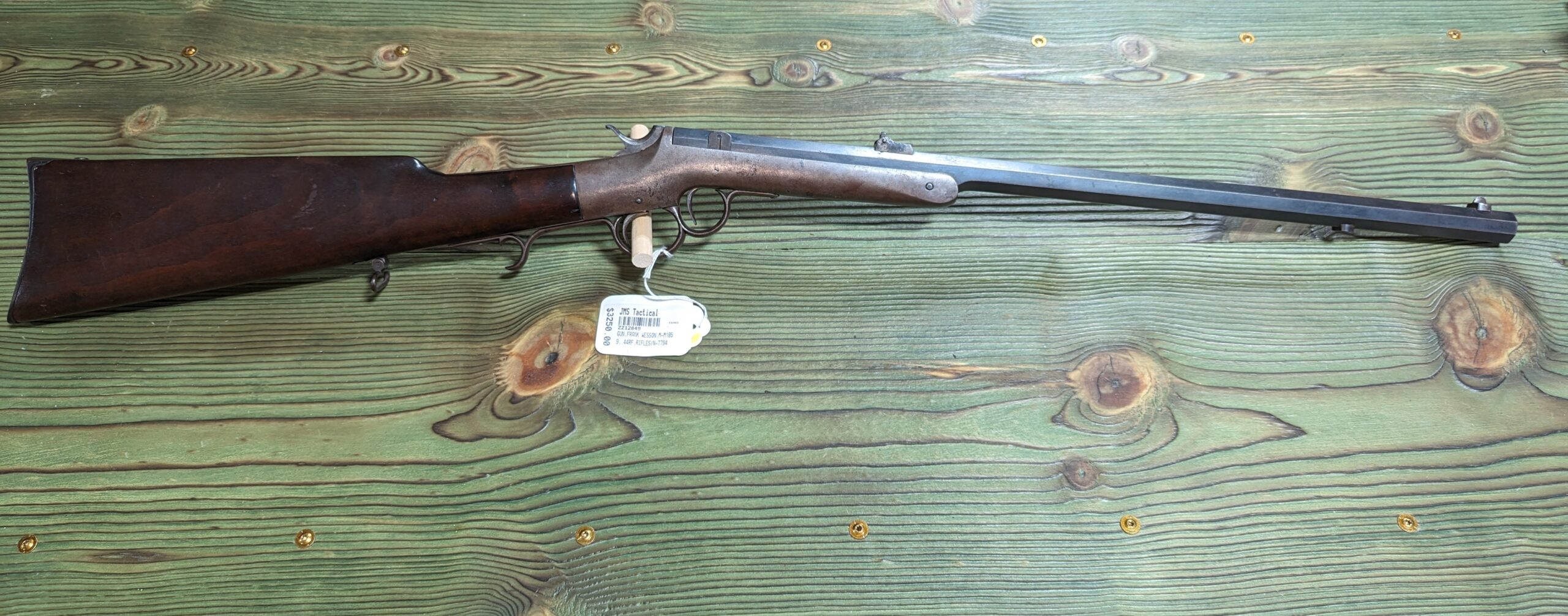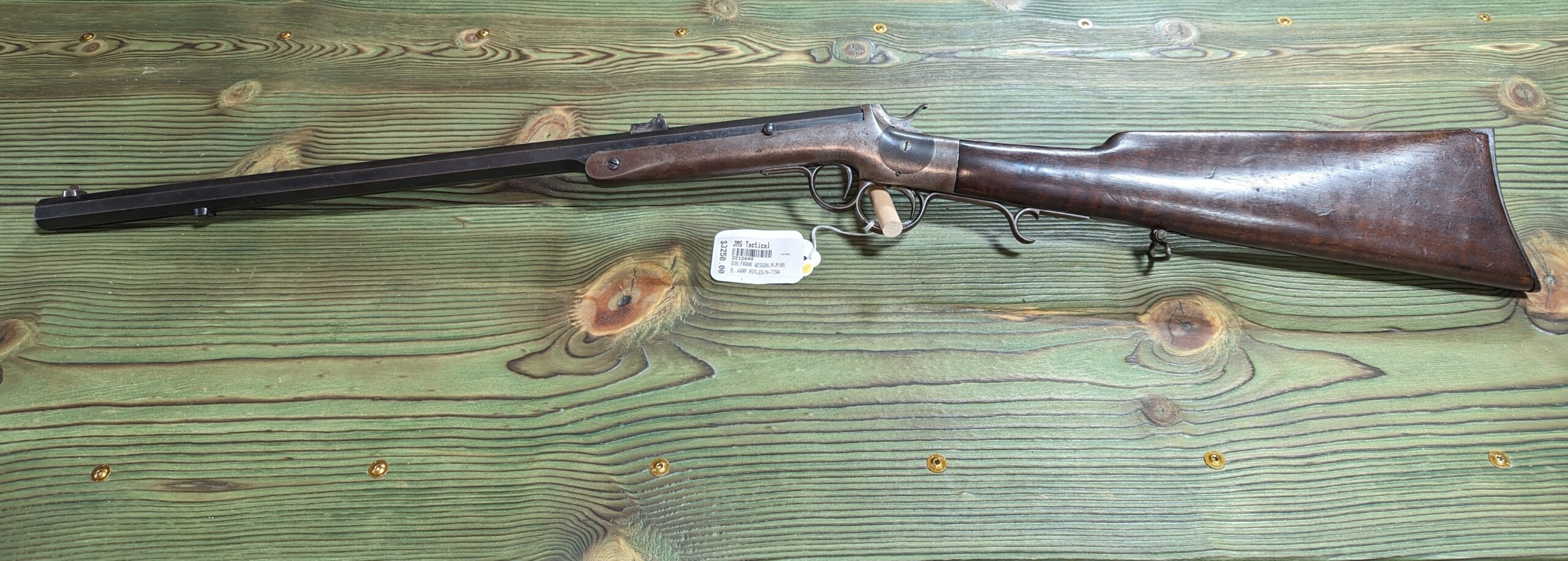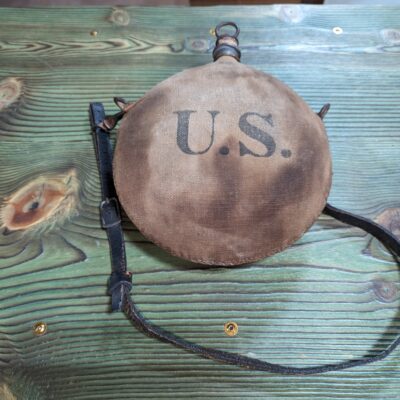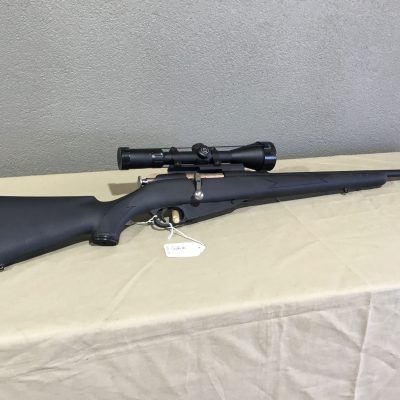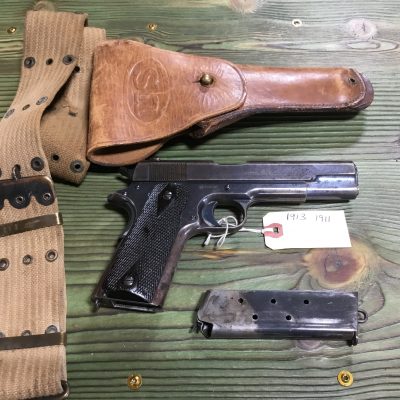Description
The Frank Wesson 1859 rifle, also known as the Frank Wesson Second Model, is an early American single-shot rifle. Here are some key details about this firearm:
Overview
- Designer: Frank Wesson
- Manufacturer: Frank Wesson, Worcester, Massachusetts
- Production Period: 1859 to circa 1874
Specifications
- Caliber: Varied; commonly chambered in .22, .32, .38, and .44 rimfire cartridges.
- Action: Tip-up action, a unique mechanism where the barrel tips upwards for loading and unloading.
- Barrel Length: Typically ranged from 24 to 30 inches, though variations existed.
- Weight: Approximately 6 to 8 pounds, depending on barrel length and caliber.
Features
- Action: The tip-up action is operated by a lever located under the barrel. This lever both opens the breech for loading and acts as the trigger guard.
- Sights: Equipped with open iron sights, typically a fixed front sight and an adjustable rear sight.
- Stock: Wooden stock, usually made of walnut, with a straight grip and crescent buttplate.
- Finish: Blue or browned barrel with case-hardened receiver.
Historical Context
- Popularity: The Frank Wesson rifle was popular among sportsmen and hunters due to its simplicity, reliability, and accuracy.
- Civil War Usage: Some models were purchased by Union forces during the Civil War for use as sharpshooter rifles, though they were not as widely used as other contemporary rifles.
- Post-War: Continued to be popular in the post-Civil War era, especially among settlers and frontiersmen.
Design and Mechanism
- Tip-Up Barrel: The barrel tips up at the breech end for loading and unloading, a distinctive feature that made it easier to use compared to other single-shot rifles of the period.
- Rimfire Cartridges: Designed to fire rimfire cartridges, which were becoming popular in the mid-19th century for their ease of use and reliability.
Collectibility and Value
- Condition: The value of a Frank Wesson 1859 rifle depends significantly on its condition. Rifles in excellent, original condition with clear markings and minimal wear are more valuable.
- Rarity: Early models and those with unique features or historical provenance can command higher prices.
- Estimated Value: Depending on condition and rarity, these rifles can range from $1,000 to $3,500 or more.
Notable Variants
- Second Model: Introduced improvements over the First Model, including a stronger and more reliable locking mechanism.
- Third Model: Featured additional enhancements and was produced in larger quantities.
Collectors’ Notes
- Frank Wesson rifles are prized by collectors for their historical significance, unique design, and association with the early development of American breech-loading rifles.
- Authenticity and condition are critical factors in determining the value of these rifles.

